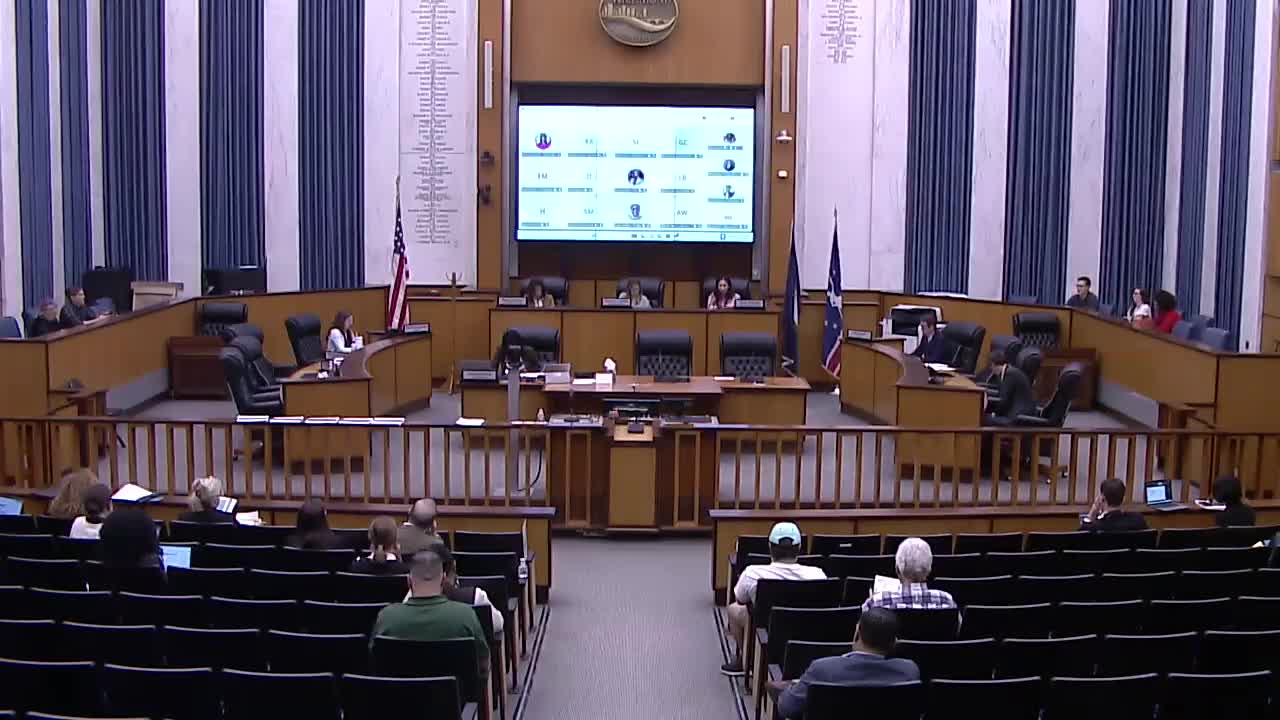Richmond committee debates two competing FOIA-library ordinances, continues both for amendment
Get AI-powered insights, summaries, and transcripts
Subscribe
Summary
The Governmental Operations and Standing Committee of Richmond met to consider two competing ordinances to establish a citywide Freedom of Information Act library and continued both for further amendment.
The Governmental Operations and Standing Committee of Richmond met to consider two competing ordinances to establish a citywide Freedom of Information Act (FOIA) library and continued both for further amendment.
The two papers before the committee were ordinance 2025-210 (sponsored by Ms. Gibson) to create a FOIA library with specified posting rules and departmental exemptions, and an alternative administration proposal (referred to in the meeting materials and slides as 02/1940) that would publish an adjustable rubric describing which FOIA responses would be posted online.
Both proposals drew sustained public comment, including from Sean Casar of Richmond DSA, Quentin Robbins of Richmond for All, and resident David Mayer, who urged stronger, codified transparency. Megan Rhine, executive director of the Virginia Coalition for Open Government, testified in favor of the Gibson approach, saying the Freedom of Information Act was meant to give “the people of the Commonwealth ready access to public records” and warning that granting broad discretion to the administration would undercut that public right.
Ross Gautreaux, director of communications for the City of Richmond, and Julia Holmes, the city’s FOIA manager, presented the administration’s view that a published rubric would allow nimble implementation and reduce harm and cost. Gautreaux said the administration’s rubric would post records that met specific tests — such as requests by multiple requesters or matters of public interest — and would exempt records that “could endanger people” or where redaction would be insufficient.
Administration staff said the bulk of FOIA work comes from four agencies — the Richmond Police Department, Richmond Fire Department, Department of Social Services, and the Department of Emergency Communications Preparedness and Response — which they estimated account for about 73 percent of annual FOIA requests (roughly 5,500 requests annually across the city). Administration presenters said narrowly exempting those agencies reduces the library’s staffing needs compared with the Gibson draft. The administration said its rubric approach would not block FOIA access; any requester could still file a FOIA and receive records under state law.
Committee members and public speakers pressed both sides on several points: how “public interest” would be defined, whether posting a requester’s original text risks harm if the request is exploitative, how often and by what process a published rubric could change, and what staffing and software costs would be required to operate a public library of FOIA responses. The committee also heard a demonstration offer of the city’s JustFOIA software and questions about what internal dashboards and reporting the software can provide.
After extended discussion and public testimony, the committee voted to continue both ordinances to the November Governmental Operations Committee meeting so that the parties can draft and review amendments and consider more concrete rubric language and staffing plans. On the motion to continue both FOIA-related papers, Ms. Gibson voted No; Vice Chair Aberbacher and Chair Jordan voted Aye. The committee instructed staff to return with more specific, objective rubric language and to consider codifying elements of any rubric so future administrations cannot unilaterally change posting policy without public notice.
The committee’s deliberations focused on the tension between removing administrative discretion (favoring a fixed code-driven library) and maintaining flexibility to protect privacy and prevent harm (favoring a published rubric the administration can adapt). Members emphasized the need for after-the-fact accountability mechanisms (for example, reporting on what was not posted and why) and clear definitions for terms like “public interest” and “operational accountability.”
Next steps: committee members asked administration and council sponsors to draft amendments addressing objective definitions for the rubric, to provide data on the number of disputed or “weaponized” requests, and to show how the chosen software (JustFOIA) will support reporting and redaction. The FOIA manager was asked to supply additional data on request types and volumes, and the administration said it would consider codifying more of its rubric within ordinance language if the committee preferred.
Votes at a glance: the committee voted to continue both FOIA-library papers to the November meeting. Miss Gibson: No. Vice Chair Aberbacher: Aye. Chair Jordan: Aye.
The committee left the items open for amendment and directed staff to return with more granular rubric language and cost/staffing scenarios.
